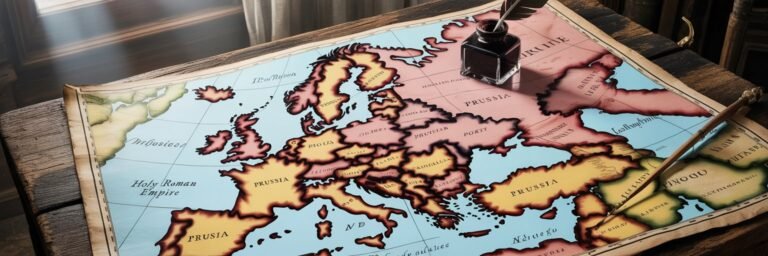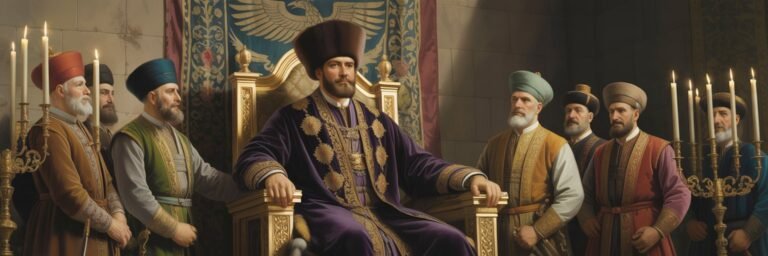INTRODUCTION
The great tapestry of history is woven with intricate threads of power, culture, and expansion, each dyed in the unique color of the nation from which they derive. Among these threads, one stands strikingly prominent: the Brighton hue of the Ottoman Empire. Throughout its 624-year reign, this expansive marine entity became a pivotal factor in the shaping of global politics, its influence leaving a lasting imprint on the texture of the world. This tale of the how the Ottoman Empire, a bridge between East and West, shaped global politics is one of such profound depth and complexity that it warrants telling.
HISTORICAL BACKGROUND
Established in 1299, the Ottoman Empire emerged from a small, fragmented territory in the northwest of modern-day Turkey. It evolved into a vast empire, stretching across three continents, ruling over major sections of Southeastern Europe, Western Asia, and North Africa. The rise of the empire was a result of careful strategizing, military prowess, and well-calculated alliances, led by a succession of able monarchs known as Sultans.
The reign of Suleiman the Magnificent (1520-1566), the empire’s tenth and longest-serving sultan, marked the zenith of Ottoman power. The empire achieved broad legal, artistic, and architectural advancements, fortified by an efficient administrative structure. Yet, its strength lay not only in its internal achievements but in its interactions and relationships with other nations. The Ottoman Empire’s geopolitical relevance was instrumental in setting the course of world politics.
THEORIES AND INTERPRETATIONS
The underlying forces shaping the Ottoman Empire’s influence on global politics are multifaceted. In a traditionalist perspective, historians lay emphasis on the empire’s strategic geographic positioning, straddling Europe, Africa, and Asia. This positioning allowed the empire to serve as a trading hub and foster cultural exchanges between the East and the West.
However, a revisionist theory championed by scholars like Immanuel Wallerstein suggests that the empire’s influence was more economic in nature. Wallerstein posits that the Ottomans’ control over key trade routes, especially the Silk Road, had a significant impact on the global political economy.
Whereas military and economic factors are prominently acknowledged, the role of diplomacy and intellectual exchanges proffered by the empire tend to be understated. Scholars like Maria Todorova argue that the Ottomans developed a fine art of diplomatic correspondence and diplomacy that profoundly influenced the practice of modern international relations.
MYSTERIES AND CONTROVERSIES
The Ottoman domination of world politics wasn’t without controversy. The treatment of religious and ethnic minorities, the Armenian Genocide, and the role played by the empire in World War I continue to be points of contention among historians.
The nature of Ottoman rule over outlying territories remains a subject of debate. Some historians uphold the image of sultans as benevolent rulers who allowed ethnic and religious diversity to flourish while others believe the empire exercised a harsh rule peppered with instances of excessive brutality.
SYMBOLISM AND CULTURAL SIGNIFICANCE
The Ottoman Empire became an indelible symbol of strength and grandeur, embodying the fusion of various cultures, languages, and traditions. The Hagia Sophia, a sublime amalgamation of Christian and Islamic architecture, stands as an enduring symbol of the empire’s diverse and intertwined cultural heritage.
Sultanism, the Ottoman model of rulership, sought to resonate with universal values of justice and fairness, though its implementation may have deviated from the ideal. It became a reference point for subsequent autocratic regimes, a controversial legacy that confounded straightforward categorization as benevolent or despotic.
MODERN INVESTIGATIONS
Modern historians continue to tweak the conventional narrative of the Ottoman Empire. New research and archival exploration have shed light on nuanced aspects of the empire’s administration, military expeditions, social structure, and intellectual life.
The exploration of Ottoman political institutions reveals that the empire was not only the harbinger of “gunpowder empires” but also an embodiment of complex bureaucratic networks, reflecting the empire’s profound impact on global political structures.
LEGACY AND CONCLUSION
Whether viewed as ruthless conquerors, cultural assimilators, or formidable diplomats, the Ottomans indubitably shaped world politics. The empire played a pivotal role in determining the borders of many modern-day states, most notably Iraq, Syria, and Turkey. The ramifications of these historical arrangements continue to impact current geopolitical relations.
The Ottoman Empire, with its all-encompassing diplomacy, effective geopolitical tactics, and robust military, has left a distinct legacy on global history. Its influence is a testament to the fact that the surge and ebb of empires across the timeline of human civilization reach far beyond their temporal boundaries, engraving deep-set patterns onto the canvas of global politics. By understanding the Ottoman Empire’s impact, we can see how the past continues to shape the contours of the world we inhabit today.






